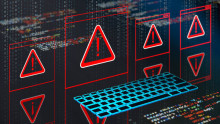Found on VirusTotal: The world’s first UEFI bootkit for Linux
Researchers at security firm ESET said Wednesday that they found the first UEFI bootkit for Linux. The discovery may portend that UEFI bootkits that have targeted Windows systems in recent years may soon target Linux too.













































































